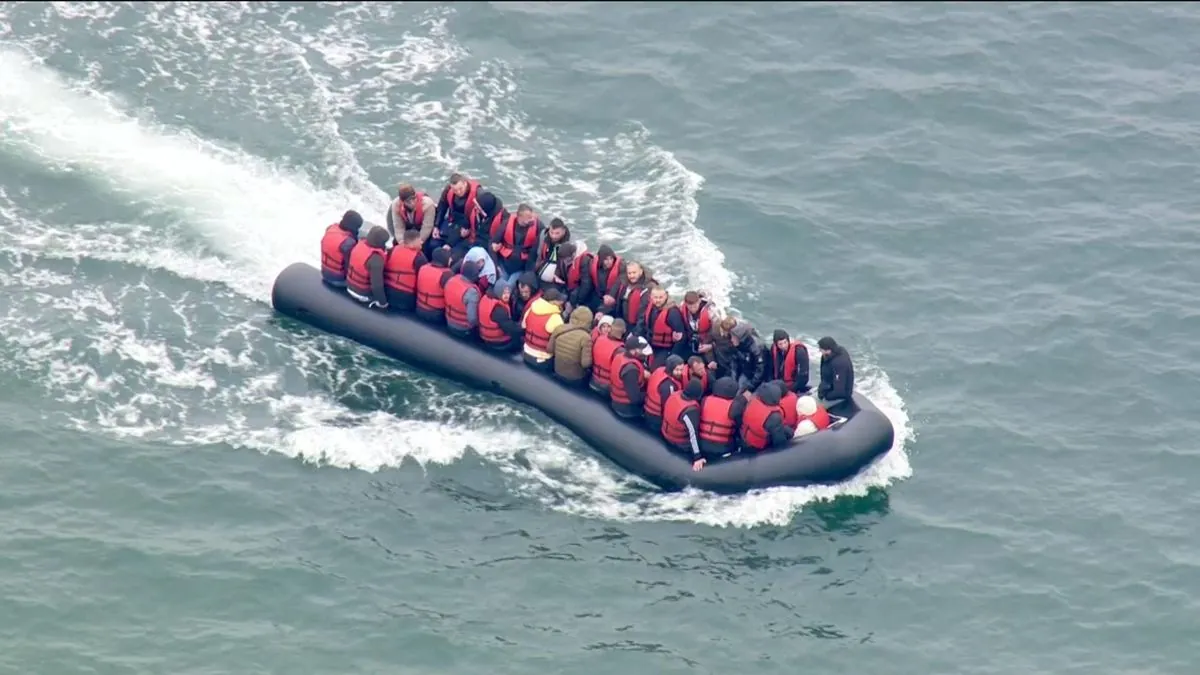UK Grapples with Rising Channel Crossings and Immigration Concerns
UK faces potential surge in illegal Channel crossings amid new government measures. Challenges persist in addressing immigration issues, with current policies deemed insufficient to tackle the complex problem.

The United Kingdom is currently facing a potential surge in illegal Channel crossings, with estimates suggesting that favorable weather conditions could lead to up to 20,000 arrivals via small boats. This situation has propelled immigration to the forefront of national concerns, according to recent polls conducted in the aftermath of civil unrest earlier this month.
In response to these challenges, the government has unveiled a series of measures aimed at addressing illegal immigration. The Home Secretary has announced plans to achieve the highest rate of returns for illegal immigrants in any six-month period since 2018. However, critics have pointed out that the 2018 figures were already surpassed in 2023, casting doubt on the effectiveness of this goal.

The government's strategy includes bolstering the National Crime Agency (NCA) with 100 additional officers to combat smuggling operations. Established in 2013, the NCA has been at the forefront of tackling serious and organized crime, including human trafficking. Currently, the agency is conducting approximately 70 investigations targeting people-smuggling networks and has collaborated with international partners to seize around 400 boats and engines intended for Channel crossings.
Despite these efforts, the scale of the problem remains daunting. While the number of Channel crossings has decreased since 2023, largely due to a returns agreement with Albania, the demographic of those attempting the journey has shifted. Recent statistics indicate that Afghans now constitute the largest group, comprising 18% of arrivals. This presents a significant challenge, as returning individuals to Afghanistan is considered unsafe and unlikely to occur.
The situation is further complicated by the cancellation of the Rwanda scheme, which was intended to address cases involving immigrants from countries deemed unsafe for returns. This decision leaves a gap in deterrent measures against illegal immigration from these nations. The alternative approach of addressing human rights law also appears unlikely to be pursued.
"We need a comprehensive and humane approach to immigration that balances border security with our international obligations to protect refugees and asylum seekers."
The UK's immigration policies have undergone significant changes over the years. The country's first Immigration Act was passed in 1905, marking the beginning of formal immigration control. More recently, the introduction of the points-based immigration system in 2008 aimed to attract skilled workers while managing overall immigration levels.
As the government grapples with these challenges, it is clear that the current measures may not be sufficient to address the full scope of the immigration issue. The complex interplay of international law, human rights considerations, and practical border control measures continues to pose significant challenges for policymakers.
The situation is further complicated by the UK's departure from the European Union in 2020, which has altered the landscape of immigration and border control. As discussions about potential new agreements, such as a youth mobility scheme with the EU, continue, policymakers must carefully consider the implications of such arrangements on the UK's immigration system and border security.
In conclusion, the UK faces a multifaceted challenge in addressing illegal immigration and Channel crossings. While new measures have been announced, their effectiveness remains to be seen, and a more comprehensive approach may be necessary to tackle this complex issue effectively.


































